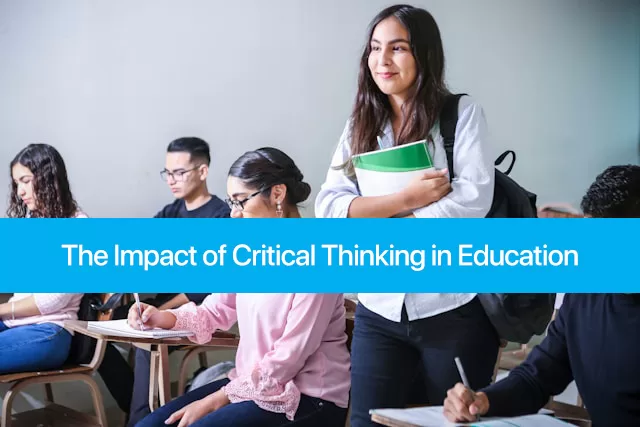Critical Thinking in Education
Critical thinking is a fundamental skill that should be nurtured in the educational environment.
It refers to the ability to think clearly and rationally, understanding the logical connection between ideas. Here’s how critical thinking plays a significant role in education:
- Enhances Learning: Critical thinking encourages students to engage with material on a deeper level, rather than simply memorizing facts. This leads to a better understanding and retention of information.
- Problem-Solving: When students develop critical thinking skills, they become more proficient at solving problems not just in their academics, but in life too. This involves analyzing the problem, generating solutions, and making decisions about the best course of action.
- Inquiry-Based Learning: Critical thinking fosters curiosity and drives students to ask questions, investigate, and seek out new solutions, promoting an active learning environment.
- Skill Development: Critical thinking helps students acquire other essential skills such as analysis, creativity, improved communication, and open-mindedness.
- Preparation for the Future: Critical thinking is a highly sought-after skill in many job markets. By cultivating this skill in school, students can significantly enhance their future employment prospects.
- Civic Responsibility: Critical thinking enables students to understand and question societal issues, thereby making them more informed and active participants in society.

In order to effectively foster critical thinking in education, it’s important for teachers to create a questioning and open-minded classroom environment, incorporate problem-solving activities, encourage reflective thinking, and engage students in project-based learning.
Teachers should also model critical thinking in their instruction and interactions, demonstrating how to question assumptions, evaluate evidence, and make reasoned decisions.
In summary, critical thinking is a vital part of education, helping students to learn more effectively, become better problem solvers, and prepare for future career and civic responsibilities.


0 Comments